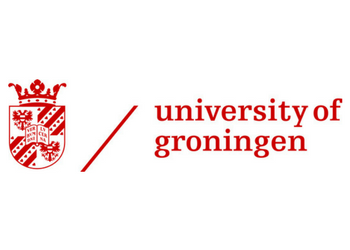

University of Groningen - RUG
speciality: Communication
What is a Communications degree?
Communications is a universal degree, which explores the traditional forms of communication such as verbal, physical, visual and written communication but also extends beyond that to cover mass communication and social media. There are different types of communications degrees depending on the degree level.
Overall, Communications focuses on teaching effective communication through social media, web, print, mass media and verbal communication. However, there are two types of Communications degrees that exist. For instance, a Bachelor of Arts in Communications in the US is focused on preparing students for careers that are connected to writing, marketing, promotions, journalism and public relations. In contrast, Bachelor of Science in Communications is dedicated to the technology used in the science behind modern communication and prepares students for careers in production or sound engineering.
A Communications degree teaches students about how media and communication influences cultures, societies and people’s identities. It involves a significant amount of critical writing and research and covers different disciplines such as journalism, public relations, entertainment production, marketing, event planning and so many more disciplines, which are somehow connected to exchanging information and conveying messages. There are also different specialization options associated with this degree, including political communication, mass media, journalism, health communication, etc.
It is worth noting that a Communications degree has many intersection points with psychology, sociology, linguistics and in some cases politics.
Benefits of a Communications degree
The main benefit of a Communications degree is its universal nature. It applies to almost any subject or professional setting. For example, some of the top careers in the field of Communications include announcers, art directors, editors, broadcast and sound engineering technicians, reporters, correspondents, broadcast analysts, technical writers, writers and authors, interpreters, translators, etc. Therefore, it keeps students’ career options open and doesn’t require them to have a predetermined career path that they want to follow.
Communications degrees prepare students to make an impact from the start of their careers unlike other degrees, which require further training. This is possible thanks to the multitude of professionally accredited degrees in Communications, which develop students’ abilities based on the established standards in the field. Moreover, there are many Communications courses, which offer work placement opportunities that enable students to gain the required professional skills before they have even started their career.
Another benefit associated with Communications degrees is the fact that they develop students’ written and verbal communication skills significantly.
A major advantage of Communications over other degrees is that in most cases there are no prerequisites required to study Communications.
Communications degree structure
The duration of a Communications degree varies depending on the country and degree level. For example, Higher Education Institutions in the UK offer 3-year Bachelor’s courses. In some cases, the course may extend to four years if students are given the opportunity to spend a year abroad or in industry between the second and third year through a sandwich course. Bachelor’s degrees in Communications in the US usually take around four years to complete.
Over the duration of a Bachelor’s Communications degree, students are expected to learn and be able to apply the established communications theories by developing the technical skills required to work in a professional setting. In the first year of their studies, students learn predominantly how media and communication influences cultures, societies and people’s identities. Optional modules may introduce them to professional communication, journalism, documentary, film-making, marketing, etc. In addition to the introductory topics, this degree allows students to learn about more complex areas of communications such as interpersonal relations, brand management and linguistics at a later stage. For instance, the second and third years enable students to get a deeper understanding of theoretical concepts related to media and culture and develop practical skills in research and communications. Additionally, students may have the opportunity to take optional modules and pursue their interests in different areas related to Communications such as gender, race, youth, culture, digital media, political communication, public relations, etc.
The most common duration of a Master’s degree in Communications is between 1 and 2 years depending on the mode of study (full-time or part-time) and country.
PhD and MPhil degrees in Communications require students to dedicate anywhere between 3 and 6 years to their studies depending on the mode and country of study.
3 Student Reviews
Filter reviews-
European Cultures ...5 months ago
 StudentBEMA Euroculture
StudentBEMA EurocultureI am doing a master’s program at the University of Groningen in Euroculture. Euroculture is an Erasmus Mundus program, putting the aspect of mobility at its core. Students like myself have the opportunity to study and work across countries in Europe for four semesters, or two academic years. I had the pleasure to study at the University of Groningen for one semester and it was simply a delightful student experience. The courses by themselves focused extensively on discussion and feedback, and the workflow was intensive enough to keep you engaged throughout the semester. Regarding my experience with university administration, the university and my program coordinator made the process of admitting me to the program as well as other processes like registering my second and third semester mobilities as easy as can be. I would highly recommend my program for students interested in EU affairs, politics and cultural studies. However, as a general remark for all the students, Groningen is a great place to study already because of its amazing study culture. There are lovely coffee shops all over the city, with some having even their own silent areas. The university libraries, especially the UB, and Forum are also great options to consider 🙂
View moreProgramme: European Cultures and SocietyDegree: Master'sGraduation: 2024Delivery Type: BlendedCampus: Groningen -
Communication28 Mar, 2022
 StudentStudent life at the University of Groningen
StudentStudent life at the University of GroningenThe University of Groningen has been the university I had dreamed of attending for as long as I can remember. Getting accepted was not only a dream but a dream come true. It was definitely a new experience, moving to a new country, a new city with only 18 years of age. However, if I could, I would easily do it all over again. The university has professors that accomplish all one looks for in a good teacher, with classes that are entertaining and exciting to get to. It is definitely a different feeling compared to high school, where you were forced to take classes you didn’t even like. With the university, it’s a new adventure every day, whether it’s for classes or even during the weekend. Groningen has one of the best student life environments I’ve seen. Everyone is extremely friendly and welcoming, and it feels amazing to go out and about, even if it’s a plan as simple as going to the park, which is also insanely beautiful. Overall, I am so excited to see what comes next in the following years, with the excitement I get every day to attend a class with content that I enjoy to the fullest.
View moreProgramme: CommunicationDegree: Bachelor'sGraduation: 2024Delivery Type: BlendedCampus: Groningen -
Communication28 Jan, 2022
 StudentPretty Chill and they Care about mental health
StudentPretty Chill and they Care about mental healthThe Uni is pretty nice and chill. I only have class on Two days out of the week and the rest is self study. The Uni seems to put a great effort into ensuring the students mental health and checking in as well as lowering the BSA for first years cause of Covid. The not so great part is that often times there is no outline on how things are going and no clear instructions for courses and for Uni handling also no help in the housing situation which is extremely difficult as an international student.
View moreProgramme: CommunicationDegree: Bachelor'sGraduation: 2024Delivery Type: BlendedCampus: Groningen

